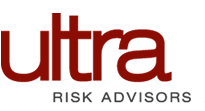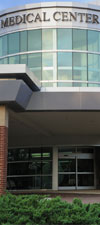This is the third entry in a series of blog posts covering all aspects of managing the media during a healthcare crisis. Being prepared to handle the media during a crisis is an essential aspect of successful management.
In this series we will cover:
- The initial response and disaster planning.
- Crisis communications.
- Selecting and training a spokesperson.
- Dealing with the media and prospecting after the crisis.
Dealing with Media
When the media first hears about a crisis, they seldom know the “slant” they will place on the story until after the first interview. It is the first impression that drives most media attention. By planning ahead of time what will be divulged to media and staff will impact the impression the community derives from the crisis management. The standard “No Comment” may make matters worse and motivate the media to draw conclusions that do more harm than benefit.
- We’ve already talked about designating one person to address media. While the Medical Director or Facility Administrator may seem the logical choice for this position, examine the skills of all staff members. It may be best to refer to another member of leadership with excellent communication skills. Offer in depth training for the designated media person.
- Prepare ahead of time with information that can easily be distributed to media. Short concise statements indicating the situation is under control and the management is working to resolve relevant issues are adequate for providing information to the public. It is not always best to provide details regarding steps being taken, or the outcome of governmental interventions.
- Prepare a brief history of the facility; include historical facts, achievements and notable awards.
- Note that the facility is always working on behalf of patients, families and staff and will continue to do so during any crisis.
- Clearly communicate with all employees to let them know that they are prohibited from speaking to the media. Give staff a phrase to use if media should approach them for comments. If all staff members use the same phrase, media will not pursue multiple staff members for comments. Phrases such as “Your questions can be answered by our media representative” will be easy for staff to remember and protect them from media barrage.
- Start all interviews with a goal and a clear message. Disaster planning and crisis team practice should be utilized to deliver preplanned messages. Learn how to direct the interviewer and identify “traps” in their questioning. Observe news reporters on local television news programs, and prepare to respond to the types of questions that are common in these interviews. This preview may prepare the facility staff to know what to expect from individual local news reporters.
- Answer explicit questions as directly as possible with facts, not opinions. If you don’t have an answer to a direct question, state something such as “we are exploring that in our investigation and we have not reached a definitive conclusion.” Never offer speculation. Inform reporters you are only able to discuss known facts and cannot speculate.
- Don’t allow yourself to be provoked. Emotions run high during a crisis. Being accused of wrongdoing or negligence can ruffle the feathers of the most stoic professional. Displaying displeasure or disgust toward a media person will not serve to create an atmosphere of professionalism.
- Never speak “off the record”.
- Take messages from reporters and set appointments for interviews. Being ambushed outside the facility creates an image of uncontrollable crisis events and incompetence.
- Treat reporters equally. Dismissing reporters or using disparaging comments against media outlets creates a hostile relationship. If the facility has the ability to use the media to provide a positive image to the community during a crisis, the media outlets can become an ally.
- Always make the care of the patients as well as their concerns of primary importance.
- Never place blame or make excuses publically.
- Have prepared statements when meeting with the media. A prepared statement will satisfy the reporters’ obligation and allow for a prepared image to be provided. Avoid taking questions that may convert a prepared message into a defensive stance.
- The public will be interested in the crisis at the facility. Align the facility’s image with the public. State how the facility has provided services to the community for years and will continue to do so during the crisis.
- Convey the message that everything is under control, while being truthful and factual. Remember, your words may appear in print on the front page headlines.
- Be cooperative. Present the position of the facility and give the impression to the media you want the community to receive.
- Refer to experts who are active with the investigation. Community members want to know that experts have been called in, no one expects one person to have all the answers.







COMMENTS
No comments yet. You should be kind and add one!
The comments are closed.